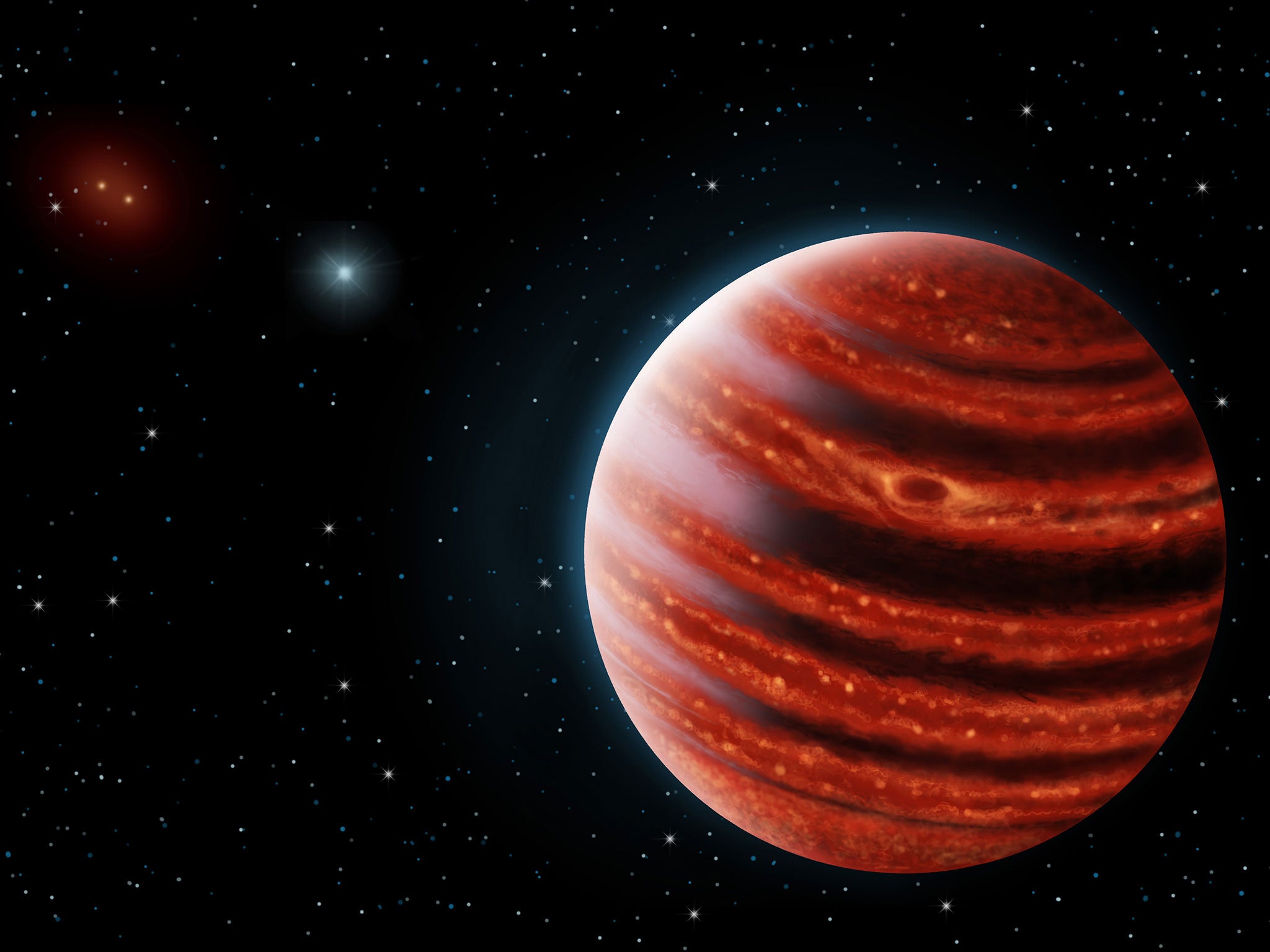51 Eridani b: Astronomers discover young planet that 'looks like Jupiter' 100 light years away
The new planet is estimated to be just 20 million years old

Your support helps us to tell the story
From reproductive rights to climate change to Big Tech, The Independent is on the ground when the story is developing. Whether it's investigating the financials of Elon Musk's pro-Trump PAC or producing our latest documentary, 'The A Word', which shines a light on the American women fighting for reproductive rights, we know how important it is to parse out the facts from the messaging.
At such a critical moment in US history, we need reporters on the ground. Your donation allows us to keep sending journalists to speak to both sides of the story.
The Independent is trusted by Americans across the entire political spectrum. And unlike many other quality news outlets, we choose not to lock Americans out of our reporting and analysis with paywalls. We believe quality journalism should be available to everyone, paid for by those who can afford it.
Your support makes all the difference.Astronomers have detected a methane-shrouded world 100 light years away that may hold the key to understanding how planets form in the dust clouds swirling around stars.
An instrument mounted on a telescope in Chile that was designed to study “cool” planets beyond the Solar System has found its first Jupiter-like object – a young, gas-filled planet rich in methane.
The Gemini Planet Imager (GPI) attached to the Gemini South telescope in the Atacama desert, was built to discover faint, young planets orbiting bright stars – and in its first month of operation it found one, scientists said.
Astronomers described the extra-solar planet, called 51 Eridani b, as having about twice the mass of Jupiter, and the strongest methane signature of any “exoplanet” (a planet that orbits a star other than the Sun).
The new planet is estimated to be just 20 million years old, compared with the 4.5bn years of Earth, which will allow astronomers to study the early stages of a planet’s evolution.
Travis Barman, a planetary scientist at the University of Arizona who took part in the study published in the journal Science, said: “51 Eri b is the first young planet that probably looks like Jupiter did billions of years ago, making it ... our most important corner-piece of the planet-formation jigsaw puzzle.”
Dr Barman added: “We have been searching for evidence of methane since the first exoplanet was discovered, as it implies conditions similar to what we see in the atmospheres of our own giant planets in the Solar System. To have found such an extraordinary example of a methane-rich atmosphere so early in our survey with GPI is really encouraging.”
More than 1,000 exoplanets have been detected over the past two decades, many with the Kepler space telescope. The telescope in Chile, however, works in a different way and uses a process called adaptive optics to cut out the blinding light from a nearby sun.
“Many of the exoplanets astronomers have imaged before have atmospheres that look like very cool stars. This one looks like a planet,” said Dr Bruce Macintosh of Stanford University, who led the construction of GPI and now leads the planet-hunting survey.
“51 Eri b is the first one that’s cold enough and close enough to the star that it could have formed right where it is the old-fashioned way. This planet really could have formed the same way Jupiter did – this whole planetary system could be a lot like ours,” he said.
Join our commenting forum
Join thought-provoking conversations, follow other Independent readers and see their replies
Comments